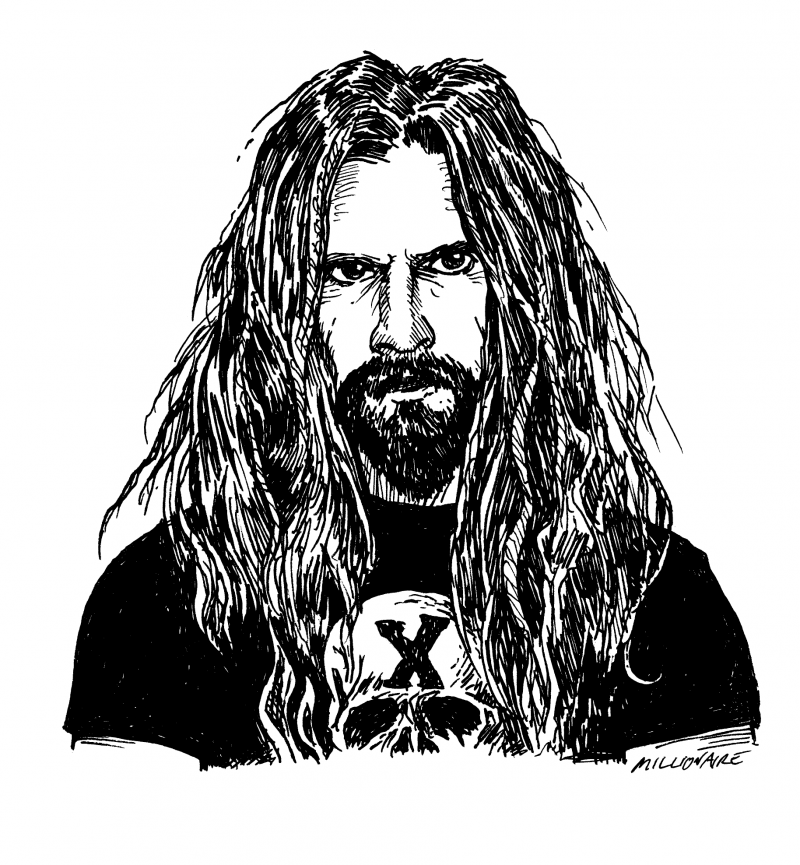Rob Zombie’s thirty-plus-year artistic career has arguably been a chaotic mess. Born Robert Bartleh Cummings in 1965, Rob moved from Massachusetts to New York City in the early ’80s to study at Parsons School of Design, where he soon met and began dating fellow student Sean Yseult. The two formed White Zombie in 1985, and while most people know the band as a grungy, oddball horror-metal outfit, they (strangely enough) started out playing art-school noise rock in the same scene as Swans and Sonic Youth at venues like CBGB in New York. As the group leaned toward tawdry B-movie aesthetics, they became one of the largest acts of the early-to-mid ’90s, playing stadium world tours and going platinum twice. Critics, meanwhile, hated them.
In 1998, amid heavy MTV rotation, and two years after Robert legally changed his name to Rob Zombie, the band called it quits. Acrimony between all four bandmates—Rob and Sean had broken up a few years earlier—made it a slog to continue working together. In the nearly twenty years since, the story has solidified into the cliché of a frontman ditching his band to go solo, which is in some ways certainly true, as Zombie went on to make six solo records. He has no desire to reunite the old band—none of the others do either—but he still plays many of their hits during the solo shows he puts on when he’s not doggedly pursuing a directorial career.
The production hell surrounding House of 1000 Corpses, Zombie’s debut feature, is legendary in cult-film history. Almost universally panned, the movie was dropped by two different studios. Eventually, it arrived in theaters via Lionsgate as an earnest train wreck, a sleazy guilty pleasure. In many ways the film’s trajectory is representative of Zombie’s entire career—including seven more films and six solo albums, all released to varying degrees of critical reproach.
I spoke twice with the now fifty-two-year-old Zombie, once before he played a sold-out theater show in New Orleans. With tangled shoulder-length hair, tattoos, a graying beard, and multiple layers of frayed denim, Zombie sat at a table littered with Perrier bottles, organic carrots, and a juicer. He was open and hospitable. After years of critical censure, he remains gleefully unapologetic when discussing his reputation.
This is a man who, due to the surprise success of a ’90s freak-show band, was gifted the financial freedom to explore any creative pursuit. And what he wants to do now is make modern versions of drive-in movies, to live with his long-time wife on a quiet farm in the Northeast, and to play songs with titles like “Teenage Nosferatu Pussy” to his dedicated fans—men and women alike—many of whom...
You have reached your article limit
Sign up for a digital subscription and continue reading all new issues, plus our entire archives, for just $1.50/month.
Already a subscriber? Sign in





